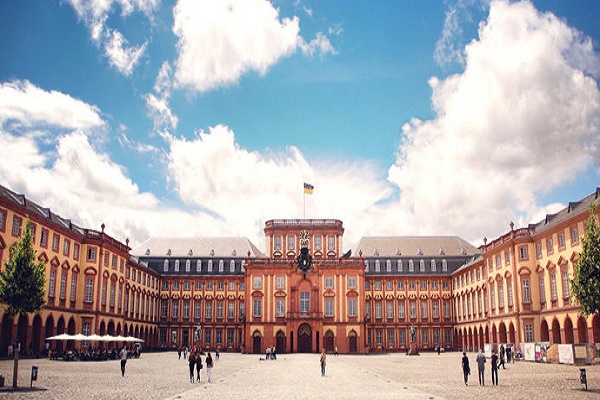12 Million Euros For University Of Mannheim On A Joint Project On Technology And Knowledge Transfer
The joint project TransforMA of the Mannheim University of Applied Sciences and the University of Mannheim is one of the projects funded in the second funding round of the “Innovative Universities” initiative of the federal and state governments. In a joint application, the two Mannheim institutions were able to develop a convincing strategy for the transfer of knowledge into society and its implementation concept and will be funded with 12 million euros from January 2023. The BMBF initiative wants to support universities in profiling themselves – in addition to research and teaching – in the service areas of transfer and innovation and to strengthen their strategic role in regional innovation systems.
For Prof. Dr. Astrid Hedtke-Becker, Rector of the Mannheim University of Applied Sciences, the cross-institutional cooperation is a great benefit: “With TransforMA, the Mannheim University of Applied Sciences and the University of Mannheim are positioning themselves as a national competence center for the design of diverse innovation and transfer processes. The technological and social focus and the industry proximity of the Mannheim University of Applied Sciences are not only complemented by the internationally leading social science and business administration orientation of the University of Mannheim, but comprehensively expanded.
Prof. Dr. Thomas Puhl, Rector of the University of Mannheim, is delighted with the award: “Mannheim and the entire region will benefit from this project. And it underlines the strength of Mannheim as a university location: We are close to the economy and the residents of the region and see it as one of our core tasks to provide research-based solutions to their specific problems.”
Together, both institutions have developed an ambitious concept to strengthen technology and knowledge transfer: In close cooperation with regional partners from business and society, transformation needs and processes are to be identified and actively designed. The planned measures are aimed at companies, public institutions and civil society groups and enable innovative transformation processes in both the social and economic environment. The development of an AI-based database, for example, should enable all stakeholders to easily scout for technology and knowledge and thus ensure low-threshold access to the knowledge and technologies available at both universities. Everyday solutions for sustainable living and households as well as impact-oriented business models are developed and tested in real laboratories. The focus is always on the question of what the constantly increasing transformation dynamics of our time are doing to people and organizations.
In addition to the transfer of scientific knowledge and technological expertise, TransforMA focuses in particular on teaching methodological skills and the continuous development of effective formats. Prof. Dr. Mathias Hafner, Vice Rector for Research, Technology Transfer and Internationalization at Mannheim University of Applied Sciences and responsible for the overall coordination of TransforMA, points out the pioneering role of universities: “Universities make an important contribution to innovations in their region. They make knowledge available through research and teaching and offer answers to current and future social and business issues. The successful transfer of research-driven solutions is a two-way process that we want to promote with TransforMA.”
At the university, TransforMA is the responsibility of a dual leadership. Julia Derkau, Head of Educational Innovation (ZLBI), emphasizes: “People and organizations in Mannheim and the region are subject to constant change. These changes open up opportunities, but can also be perceived as an existential threat to established systems and life plans. With TransforMA we want to help shape this process positively, regardless of whether this change is caused by technological progress, social changes or economic developments. Hiram Kümper, holder of the Carl Theodor Professorship at the Historical Institute, adds: “TransforMA is not least an important project to connect our two institutions more closely. That’s good for each other. Because it will also strengthen the topic of transfer internally and make the facilities themselves open and at the same time resilient in the best sense of the word to the great challenges of our time. In this way we can assume responsibility and fulfill the trust that society places in us as shapers of the future.”
TransforMA will receive funding of almost 12 million euros for a period of five years. The funding is borne in a ratio of 90:10 by the federal government and the state of Baden-Württemberg. The Mannheim University of Applied Sciences is responsible for coordinating the project. On March 21st and 22nd, 2023, the kick-off event for all nationwide funded projects will take place in Mannheim Palace.

